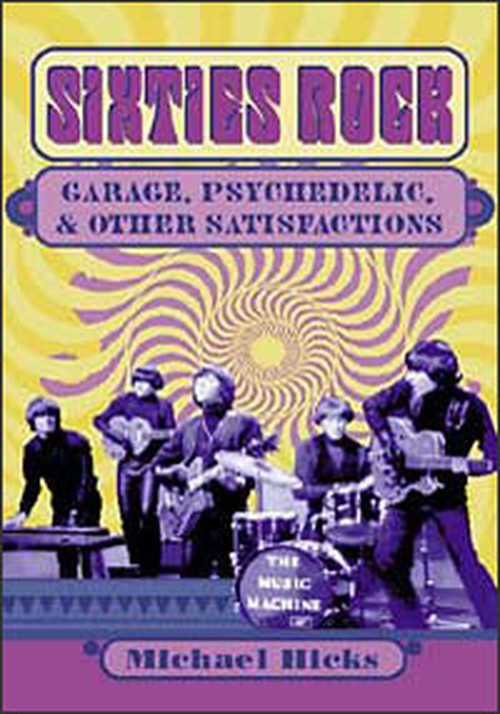
Sixties Rock
Garage, Psychedelic, and Other Satisfactions
The distorted guitars and harmonious vibes of a music revolution
Paper – $24
978-0-252-06915-4
Publication Date
Paperback: 01/01/2000
Series: Music in American Life
About the Book
Unlike their rock 'n' roll predecessors, many rock musicians of the mid-sixties came to consider themselves as artists--self-consciously presenting themselves as creators of a new sonic medium.Sixties Rock offers a provocative look at these artists and their innovations in two pivotal rock genres: garage rock and psychedelic music. Delving into everything from harmony to hardware, Michael Hicks shows what makes this music tick and what made it unique in its time. Looking at bands like the Doors, the Rolling Stones, the Yardbirds, and Love, Hicks puts legends and flashes in the pan alike through a rigorous analysis that places their music within rock history while exploring its place in the oft-swirling contexts of the time.Reviews
"A thoughtful, compelling, and stimulating addition to the literature of popular music studies. Hicks engages the musical details of rock music exceptionally well, accounting for their production and interpreting their significance. We need moresuch work."--Robert Walser, author of Running with the Devil: Power, Gender, and Madness in Heavy Metal Music"A fresh and fascinating account of an important body of American music. . . . Hicks's book rings true, much more than anything else I've read on the subject."--Charles Hamm, author of Putting Popular Music in Its Place
"A delightful book, covering selected facets of a large musical era in considerable and highly readable detail."--Frank Oglesbee, Communication Booknotes Quarterly












